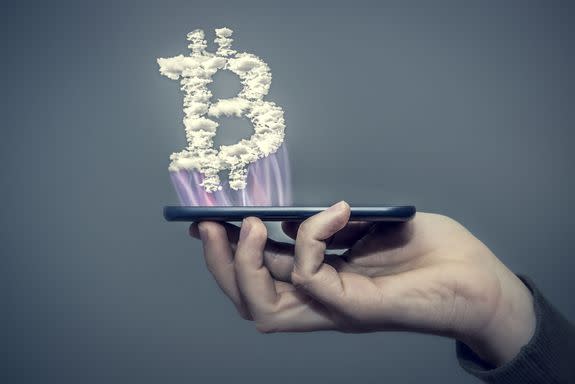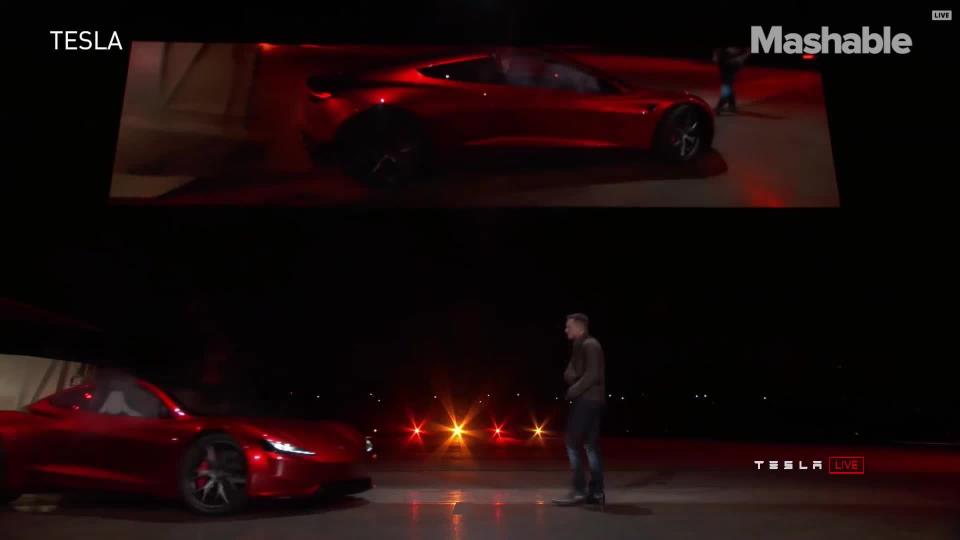4 industries you probably didn't realize could be impacted by net neutrality

With a historic net neutrality vote set to take place tomorrow, people across the United States are rightly concerned about the future of the internet. Visions of price-tiered online spaces dancing in their heads, constituents all over the country are reaching out to their elected officials in a likely doomed effort to forestall what many see as the inevitable destruction of our mostly level digital playing field.
But tomorrow's vote is about more than whether Comcast can charge you extra for streaming movies on Netflix. Just as the internet has seeped into many unexpected facets of our lives, abandoning net neutrality could have unexpected consequences in places you might not expect.
SEE ALSO: The net neutrality vote, explained
Self-driving cars
If Elon Musk is correct, driverless cars could soon be everywhere.
Those vehicles will require sophisticated onboard computers, and those computers will probably come with some form of internet connectivity.
We've already seen the benefit of this. Tesla vehicles can download "over-the-air software updates" when linked up with Wi-Fi, negating the need to take a car into the shop to address recalls. This is both a cost- and time-saver for car owners, and will likely become a widespread feature as older cars are phased out over time.

Image: JustSuper/getty
But what if, say, your home internet provider felt like making a little extra cash. It might reasonably assume that anyone with a self-driving vehicle is on the wealthier side, and could conceivably charge extra for access to the Tesla network issuing the patches. Oh, you want your Model S to be able to perform regular self-maintenance? That'll be an extra $20 a month.
Also, while self-driving cars will likely not be constantly connected to the internet for security reasons, it's hard to predict just what features will and will not become standard. Doing away with net neutrality gives internet providers the ability to shape how our cars connect to the online world.
The Internet of Things
The ever-growing Internet of Things has made it clear that no device or gadget is too small or "dumb" to be saddled with some form of connectivity. From doorknobs to dildos, manufacturers are rushing to ensure that every damn thing has a place in our connected future.
And, to be clear, many people enjoy these products! Think of your smart speaker, or your internet-connected teddy bear. If you're the type of person to buy one of these things, you probably love it. The ease with which those devices put the internet at your fingertips is one of their big selling points. But what if it wasn't so easy?
While companies like Netflix may pay up for fast-lane privileges, the maker of your Wi-Fi-connected coffee pot may not feel likewise inclined. Essentially, this could translate into a de-prioritization of IoT traffic. In other words, your smart home could become a tad bit slow.
Healthcare
In addition to just being a pain in the ass, the repeal of net neutrality could do real harm to your health. That's because the modern medical field has come to depend on that aforementioned free and open internet — something very much at odds with Federal Communications Commission chairman Ajit Pai's plans.
These days, electronic health records are often kept in the cloud, and fast and reliable access to this data is vital to patient care. What's more, telemedicine — remotely providing healthcare via some form of telecommunication — is super data heavy. Whether that's remotely analyzing X-rays, or a rural patient connecting with a doctor in a far-off city, this stuff takes a lot of bandwidth.
Will your small-town hospital be able to compete with the Facebooks of the world when it comes to buying a piece of bandwidth pie? Unfortunately, we may soon have to find out.
Cryptocurrency
Bitcoin and the wide assortment of altcoin in the world are big business. Like, very big business. This magic internet money is bought, sold, and traded on exchanges like Coinbase. People depend on access to these exchanges in order to manage their cryptocurrency, and any restriction of that access could have huge financial and structural implications.

Image: martinwimmer/getty
With no net neutrality to stop them, ISPs could in theory throttle access to exchanges not of their liking. While diehard cryptocurrency enthusiasts would surely find a way around such a step, the common person may not have the skill or patience to do so.
This could impact the price of some cryptocurrencies. If the main exchange offering your altcoin of choice is suddenly given the short shrift by Verizon, well, then associated trading and the coin's value could possibly decline as a result.
So, what now?
The loss of net neutrality will likely have far-reaching implications, and it's still too early to know exactly what those will be. It's not too early, however, to predict that many of them will be unpleasant. From self-driving cars to cryptocurrencies, tilting the scales in favor of established players with deep pocketbooks is unlikely to benefit the little man.
However, with the fate of tomorrow's vote all but certain, net neutrality appears to be on its deathbed. Let's just hope it doesn't take us and our internet-connected world down with it.
WATCH: Tesla unveils their latest roadster and it's beautiful


